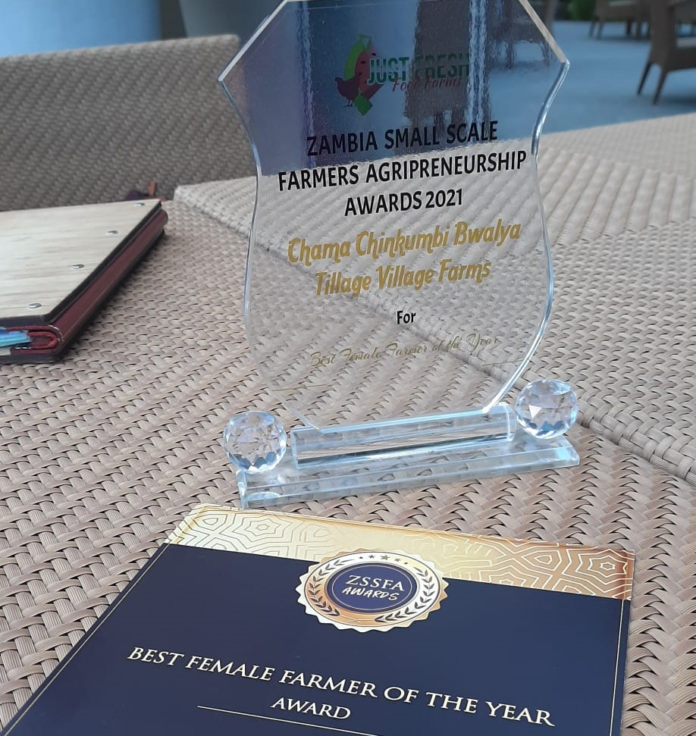By Lawrence Paganga
Lusaka-based Chama Bwalya has been farming in Zambia’s capital since 2000 growing various crops like tomatoes, cabbages, and a variety of other vegetables.
After 18 years on the land, in 2018, Bwalya, the owner of Tillage Farm, realised the way she was farming was not making any meaningful profits and headway due to several factors including pricing of the crops, especially tomatoes on the market.
She then heard about the benefits of strawberry farming and decided to attend a one-day training session at Farm 23 in Lusaka. Since then, Bwalya has not looked back and is one of the most successful strawberry farmers in Zambia.
“We got inspired and decided to go into strawberry growing and we put our first crop of 500 seedlings. We now have 20 000 seedlings and we are hoping to get to 50 000,” she said.
Some three years later, Bwalya, who is Zambia’s 2021 female farmer of the year, said she was noticing the significant benefits of growing strawberries.
“It’s not that stressful than to growing tomatoes and cabbages. You can grow them throughout the year as long as you have water. Therefore, we use drip irrigation as opposed to overhead irrigation in that we want to harvest our crop as clean as possible.
“If we use overhead, the strawberries will come out with soil and dust, which is not good for the table. So, we have invested in drip irrigation to minimise soiling the crop during harvesting.
“We are growing strawberries organically, and so, we have to support the organic aspect of it which involves the incorporation of rearing chickens for use to harvest the manure.
Bwalya said strawberry farming was not a business that had been exploited fully in Zambia and urged potential farmers to venture into it as it was an easy to manage the crop.
However, the downside is that it is labour intensive as weeding is done manually.
“A lot of farmers think of the seasonal crops like maize, sunflower, and soyabeans, but strawberry is a crop that can keep you busy throughout the year and it does not have many farmers working on it.
“So, the competition is very minimal and we are able to decide on pricing because they are very few farmers who are growing it. This is the right time to get into strawberry farming as competition is not stiff,” she added.
Bwalya said she was assisting new farmers with training, and her charge was that the trainees only have to buy seedlings from her.
“From transplanting you are able to harvest in nine months and the plants are able to produce for four years.”
To add value to excess strawberries at the farm, Bwalya is now processing strawberry jam and working on increasing production with the hope that Zambia reduces the bill of importing the product.
“Farming is not a business that you get into today, and become a millionaire tomorrow. You must get basic information,” Bwalya said as a parting shot.








